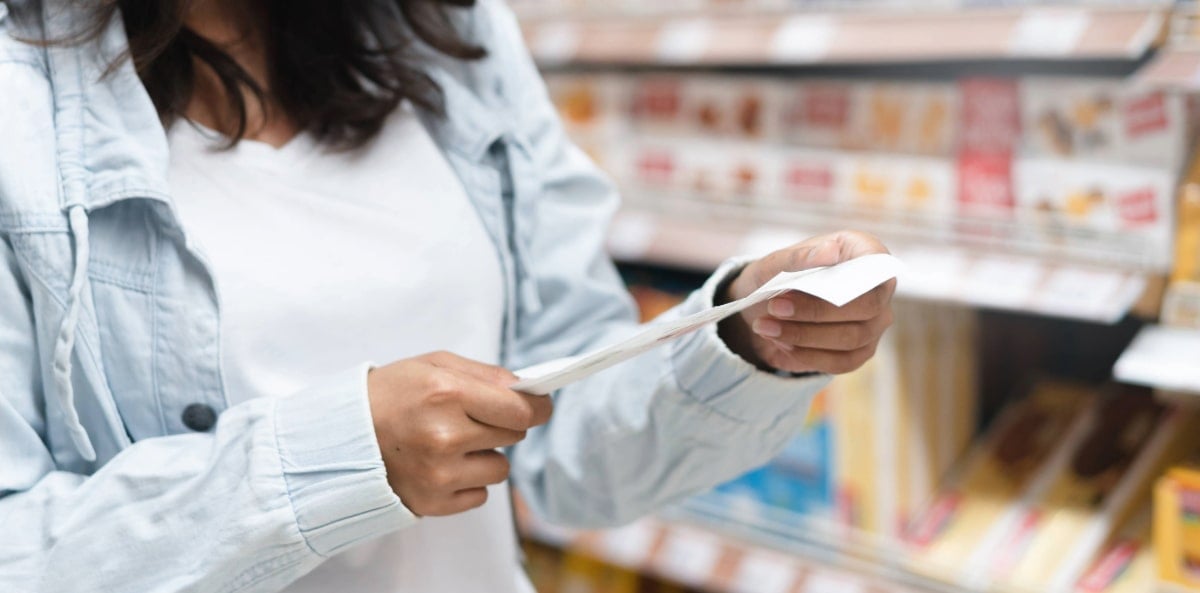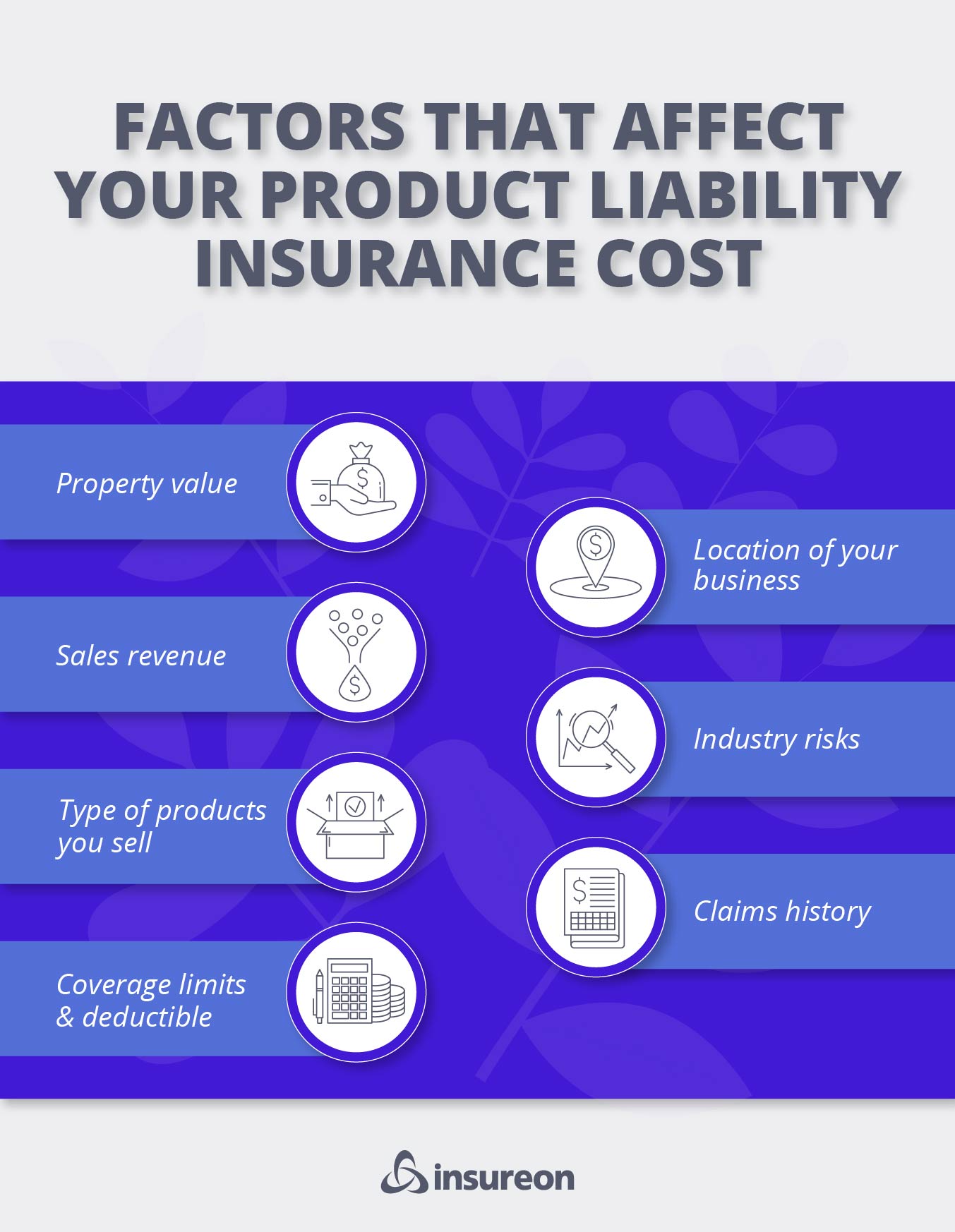Common examples of product liability cases and claims against small businesses

Product liability lawsuits can be devastating to a business. In fact, the Insurance Information Institute reports that in 2020, juries ordered the highest verdicts in personal injury cases to those involving product liability.
The average award was more than $7 million. Not only can product liability lawsuits ruin a company financially, they can also have an incredibly negative impact on its reputation—even if the company ends up winning the case.
While product liability lawsuits can be devastating, the best way to prepare your business for a lawsuit is understanding the most common causes of product liability cases, and how you can protect yourself with and effective risk management plan, including the right insurance coverage.
What is a product liability lawsuit and who can be sued?
Product liability lawsuits are brought when someone is harmed by a manufactured good. For a business to be held liable for damages, the plaintiff has to prove several things:
- The product was defective
- The defective product caused an injury
- The injury caused losses
- The designers, manufacturers, distributors, or retailers had a duty to provide a safe product
There are many parties that can find themselves as the defendant in a product liability suit. Any member of the manufacturing chain, from concept to sale, is at risk.
Plaintiffs do not need to prove negligence on the part of the designers, manufacturers, or distributors. That’s because of strict liability, a doctrine of product liability law adopted in most states that makes it easier for people to sue regardless of intent.

What makes a product defective?
The first standard of proof in a product liability suit is whether a product is defective. A defective product is an item that is unfit for its intended purpose. There are three major categories of product defects: design defects, manufacturing defects, and marketing defects.
Each of the types loosely indicates at what stage in the fabrication process the problem developed—before, during, or after manufacturing. However, product liability lawsuits can cover defects that span all three categories.
Design defects
Design defects are issues that arise from faulty plans. So the trouble starts before manufacturing even begins.
With this type of defect, the product is made according to specification, but when the consumer uses it according to instructions, it puts them at risk. Because the problem is tied into the planning stages, in most cases all products are affected.
There are several types of defective product designs that span all kinds of industries.
Insufficient safety guards - This can include power tools and small household appliances that lack protection from moving parts.
Choking hazards - U.S. law prohibits small parts in consumer products that are intended for use by children under three years old because they present a choking hazard. If the item as a whole, a separate part of it, or a piece that could break off during use meets “small part” dimensions,” then it can be considered defectively designed because of the choking risk.
Strangulation risks - This includes products with cords, such as window blind cords, drawstrings, necklaces, and ribbons that could strangle infants or children.
Stability issues - These defective designs can run the spectrum from furniture brands to automakers. Think of top-heavy SUVs with a narrow wheelbase that are more likely to roll over, or chairs, dressers, and tables that have uneven legs, making them wobbly or unable to support weight.
Hazardous chemicals - It should be no surprise that products that contain ingredients harmful to the body are considered defective. There are some well-known toxic chemicals, such as asbestos and lead, which are often the focus of product liability cases.
Real-world examples of design defect product liability lawsuits
IKEA was ordered to pay a $46 million settlement after a California toddler climbed onto a dresser, which then fell on top of him and he suffocated. It’s said to be the largest American wrongful death award ever for a child. Later designs included a requirement to anchor the dressers to the wall.
Monsanto, the maker of Roundup weed killer, used glyphosate in their product. Studies show the chemical may cause illness, including cancer, and it can be damaging to the environment.
More than 100,000 Roundup lawsuits had been settled by 2022, and in later cases, juries awarded payouts to two separate victims in the amounts of $2.25 billion and $332 million, including compensatory damages and punitive damages.
Medical device maker Philips agreed to a $1.1 billion settlement over its faulty CPAP machines. Plaintiffs alleged the foam used in the products degraded and could break off and be ingested, causing cancer and organ damage.
Takata used a propellant that could make their airbags explode when deployed, causing the potential for injury or death. They pleaded guilty to criminal wrongdoing and agreed to a $1 billion settlement with the Department of Justice.
The incident led to the largest American auto recall in history—42 million vehicles. Additionally, more than a dozen car manufacturers, including General Motors and Ford, were named in class action lawsuits. Plaintiffs claimed the automakers knew the airbags were a dangerous product.
3M agreed to payouts to more than 249,000 veterans who said earplugs they were issued caused hearing loss. The plaintiffs said the design was defective because the earplug was too short to form an effective barrier.
Manufacturing defects
Unlike design defects, where the product was assembled perfectly and according to plan, products that are defective due to manufacturing experienced a flaw while being made. The issue then creates a problem when a consumer uses it, resulting in injury.
The defect could affect a large or small amount of product, depending on the manufacturing process and how quickly the issue was detected and resolved.
Some types of manufacturing defects include:
Incomplete or missing components - If even one piece in a product is not accounted for, it can have disastrous consequences. While it may be as major as a piece of safety equipment, it could be as small as a fastener.
Incorrect installation or assembly - Like incomplete components, missing one step or making a mistake during production could have major impacts.
Improperly machined or manufactured parts - The more custom parts your product has, the more vulnerable you are to this type of defect. Cars are a good example of this. Almost every major automaker has had to recall vehicles or faced lawsuits due to parts being improperly machined. They could include everything from engine crankshafts to headrests.
Improperly programmed or calibrated - When products involve electronic components, the risk of issues during manufacturing only grows. Many times, these types of goods have a very low tolerance for error, so any small deviation can render them unsafe.
Faulty raw materials - Substandard ingredients or substances can compromise a product’s integrity and lead to possible injury. The type of product can increase this exposure. For example, contamination in products meant for consumption—either food or healthcare related—can pose serious dangers.
Real-world examples of manufacturing defect product liability lawsuits
Boeing has been sued for its role in a 727 Max 9 plane where a door plug detached mid-flight. Later findings showed loose bolts contributed to the incident.
Medical device maker Dexcom faces several lawsuits after diabetes patients and their survivors say one of their glucose-monitoring systems gave inaccurate blood sugar readings.
Patients have filed lawsuits after being diagnosed with cancer when they found out some batches of the high-blood pressure medication they took, Valsartan, was contaminated with two carcinogenic substances.
Johnson & Johnson no longer sells talcum-based baby powder after traces of asbestos were found in its product. They are trying to reach a settlement after more than 50,000 claims allege the tainted baby powder caused cancer.
Marketing defects
Unlike the other types of defects, a marketing defect is related entirely to the communication given to the consumer about the product. Manufacturers and retailers must furnish adequate safety information and represent the product accurately.
Examples of marketing defects include:
Failure to warn - Even if a product was designed and produced correctly, a manufacturer still has an obligation to notify consumers of potential dangers or side effects through disclaimers and labels.
Incorrect or incomplete instructions - Consumers must be given thorough and complete directions on how to properly use the product.
Misleading advertisements - If marketing materials provide statements that don’t accurately reflect a product’s use or possible dangers, a company can be held liable for any damages caused.
False claims - These acts of deception can include exaggerating a product’s benefits or minimizing its risks. If a personal injury attorney can prove the misrepresentation was intentional, it could be considered fraud.
Real-world examples of marketing defect product liability lawsuits
A jury ruling against Philip Morris handed down $28 billion in damages for the Big Tobacco company’s role in a woman’s inoperable lung cancer. Internal communications presented as evidence showed Philip Morris knew that cigarettes caused cancer and that nicotine was addictive, but used marketing to convince the public of the opposite.
McDonald’s coffee now has a warning label after a woman sued for damages. She claimed she was burned after spilling coffee on her lap. The jury agreed and told the fast food giant to pay her $3 million.
A drug manufacturer was held liable because the jury ruled its dispensing instructions were incomplete. Wyeth v. Levine eventually went to the U.S. Supreme Court to determine if FDA-approved warnings gave impunity on a state level.
The maker of Similac baby formula was ordered to pay $495 million after a premature baby developed an intestinal disease while in the NICU. The jury agreed that the plaintiff’s injuries were caused by the formula and that its maker, Abbott Laboratories, knew about the possible effects and did not warn about them.
DuPont agreed to pay Ohio $110 million to settle a case accusing them of dumping so-called “forever chemicals” in the state. Ohio’s attorney general claimed the company intentionally concealed the dangers while making household products like Teflon.

How to protect your business from product liability lawsuits
Insurance is key when your business is threatened with a product liability lawsuit. Going to court over claims of a defective product is expensive. So, it’s important to have the right insurance policies in place to cover your costs.
If your company designs, manufactures, or sells items—whether it’s in beauty, food and beverage, cannabis, or anything else—there are three insurance coverage options you will want to consider.
General liability insurance
General liability insurance should be a given for any small business. It covers legal costs associated with injuries or property damage. And the good news is, most general liability policies also include product liability coverage. You’ll still want to check with your agent to make sure of exactly what’s covered.
Product liability insurance
At times, a general liability insurance policy excludes damage caused by products. If this is true in your case, you would want product liability insurance. This is generally included as a rider, or endorsement, to your policy. It’s also sometimes called products-completed operations coverage.
Product recall insurance
Recalls can be either mandatory or voluntary, but they are always costly. Product recall insurance pays for expenses related to this move, including notifying the public, collecting and disposing of the defective product, and crisis/PR management. It’s also a rider to your policy.
Keep in mind, too, that if you’re selling as a third party on a platform, they may demand product liability coverage. For instance, Amazon requires product liability insurance when you sell more than $10,000 per month.

4 tips for reducing product liability risks
The best course of action is to avoid defective products altogether. This will minimize your chance of being sued. To do so, you’ll want to follow these supply chain management (SCM) best practices and risk management strategies:
1. Perform detailed product testing and quality assurance
Verify your testing methods are solid before items reach the general public. You want to ensure your product meets industry standards and customer expectations.
To this end, make use of quality assurance software and systems that help identify product flaws. They can help track product defects, manage supplier quality control, and maintain regulatory compliance.
If you manufacture children’s products, you have an extra step to be aware of, since the government requires these goods to be tested in an accredited, third-party lab.
2. Include and double-check product labels
If there is any possibility your product could cause harm, it should have a prominent warning label. General or vague wording should be avoided. Instead, be as specific as you can. Tell users what the risks are and how to properly use the product to avoid accidents or injuries.
You may want to include graphics and warnings in multiple languages to be as inclusive as possible. This is not the time to rely on AI-generated copy. Do your due diligence and consult a lawyer to make sure you’ve fulfilled your warning obligations.
3. Regularly inspect and clean manufacturing equipment
Damaged machinery can create damaged goods. So develop and keep a proper protocol for maintaining all equipment used in your production process. Not only will this limit defects in your products, but it will also minimize workers’ compensation claims due to employee injuries from faulty equipment.
4. Track retail status
Keeping an eye on where your finished product is means you can quickly pull it before its release if necessary. Many SCM applications track product shipments from the time they leave the manufacturing plant until a buyer purchases an item. By implementing one of these systems, you can avoid or minimize a recall at the consumer level.
If your business faces a lawsuit alleging a defective product, contact your insurance provider immediately. You’ll also want to seek legal advice from a specialized product liability lawyer. If you don’t have one, your insurer can often recommend one.
Depending on the lawsuit, a product liability attorney may direct you to:
- Collect documentation from all employees or contractors connected to a product
- Preserve an example of a flawed product from a defective batch
- Request a confidential order to safeguard proprietary product information
Get product liability coverage with Insureon
If you are found liable for a defective product lawsuit, you’ll be responsible to pay damages, court costs, and attorney fees. The best way to protect yourself in that situation is with the proper product liability coverage, which starts with a free consultation from Insureon.
Small businesses across the country have gotten cheap business insurance through us that addresses their unique situation and needs. We can get you a quote in a matter of minutes.
If you already have general liability coverage through Insureon, contact us to make sure you have product liability included in your policy and that your coverage limits are adequate. We can also provide a certificate of insurance typically within a couple of hours.
Sara Singh, Contributing Writer
Sara’s career has taken her across the writing spectrum. She started as a television news producer, then was hired as the marketing manager for a financial services firm. After working for the publisher of the world’s most widely circulated magazine, Sara went into the agency scene as a copywriter and finally served as the in-house content writer for a tech consultancy. Now, she freelances for a variety of clients so she can have the flexibility to do volunteer work and travel.









